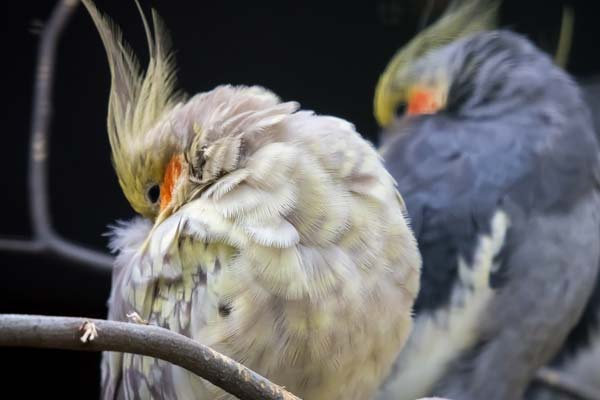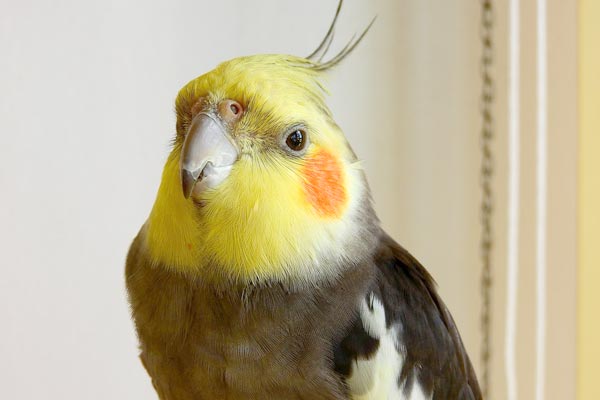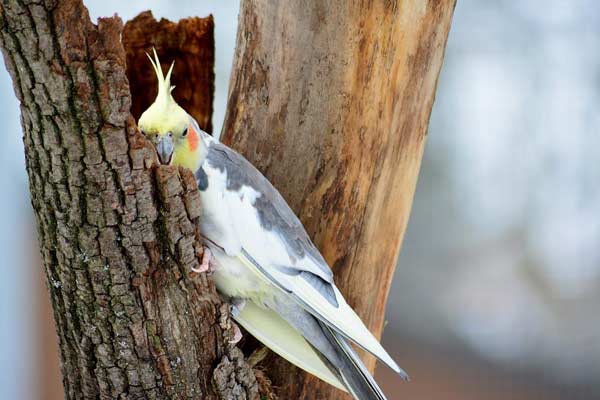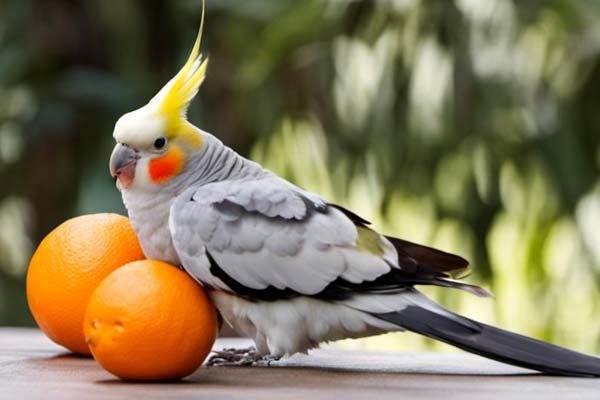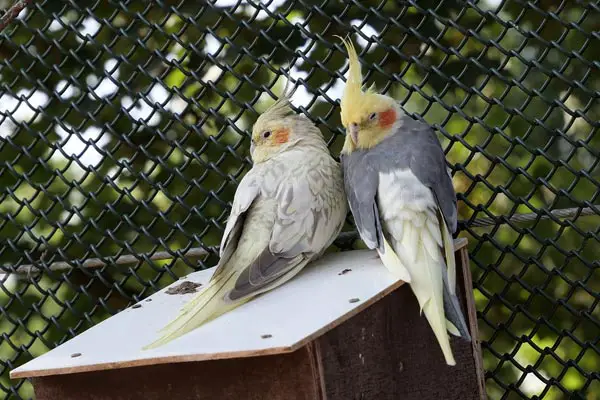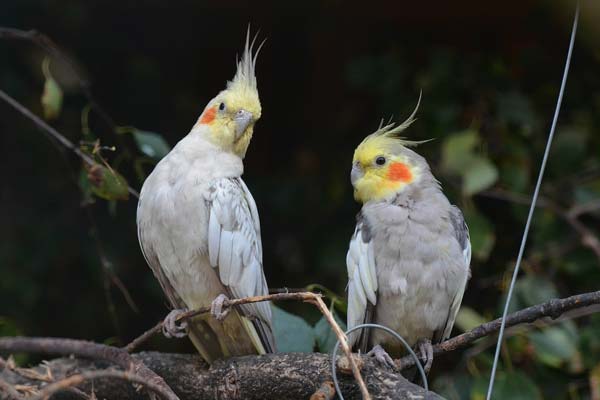Can Cockatiels Get Cold? Understanding the Temperature Tolerance of Your Pet Bird
Cockatiels are adorable birds that make great pets. They are known for their playful and affectionate nature and are relatively easy to care for.
However, it’s essential to understand their specific needs regarding keeping them healthy. One question that often comes up is whether cockatiels can get cold.
The short answer is yes; cockatiels can get cold. While native to hot, dry environments, they are not equipped to handle harsh winter temperatures.
Exposure to cold temperatures for too long can make them sick and even develop hypothermia. Cockatiel owners must be vigilant and look for signs of cold stress in their birds.
Identifying signs of cold stress in cockatiels can be challenging, as birds tend to hide their symptoms. However, some common signs to look out for include feather fluffing, lethargy, and loss of appetite.
If you notice any of these symptoms in your bird, it’s vital to take action to warm them up and prevent further cold stress.
Can Cockatiels Get Cold?
Yes, Cockatiels can and do get cold. While they can tolerate various temperatures in their natural habitat, they are not adapted to withstand extreme cold.
In captivity, cockatiels can live in temperatures between about 40°F (4°C) and about 80°F (27°C), but they may still feel the cold.
Cockatiels’ Natural Cold Tolerance
In the wild, cockatiels are found in arid and semi-arid regions of Australia, where temperatures can reach over 100°F (38°C) during the day but can drop significantly at night.
They are adapted to handle these temperature fluctuations but must be better equipped to handle prolonged cold spells.
Behavioral and Physical Indicators of Discomfort
Cockatiels may show signs of discomfort when they are too cold. They may fluff up their feathers to trap in heat, shiver or shake, or huddle together with other birds. They may also become less active or vocal or lack appetite.
Knowing When Additional Care Is Required
If a cockatiel is showing signs of discomfort due to cold, it is crucial to keep them warm. This may include moving their cage to a warmer location, providing additional heat sources such as a heat lamp or heated perch, or providing extra bedding or nesting materials to help them retain heat.
Close observation of a cockatiel’s behavior and physical condition during cold weather is crucial, as prolonged exposure to low temperatures can lead to illnesses or even hypothermia.
Suppose a cockatiel shows signs of illness, such as coughing, sneezing, or lethargy. In that case, it is crucial to seek veterinary care promptly, as these symptoms could indicate a more severe condition, such as a common cold.
Keeping Cockatiels Warm in Winter
Cockatiels are native to Australia’s warm and dry regions and are not well adapted to cold temperatures. As a result, it is essential to keep them warm during the winter months. Here are some tips to help keep your cockatiel warm:
Creating a Draft-Free, Cozy Environment
The first step in keeping your cockatiel warm is to create a draft-free and cozy environment. Cockatiels are sensitive to drafts, so ensure their cage is placed away from any windows or doors that may let in cold air.
Additionally, you can use blankets or towels to cover the cage to help insulate it from the cold.
Recommended Heating Solutions for the Cage
There are several heating solutions that you can use to keep your cockatiel warm. One option is to use a heat lamp or ceramic heater placed outside the cage.
This will provide indirect heat to the cage and keep the temperature warm. Another option is to use a heated perch or heating pad inside the cage. These can be placed near the bird’s favorite spot in the cage to keep them warm.
Maintaining Warmth at Night
To keep your cockatiel warm during colder nights, consider using a heating pad or a warm water bottle wrapped in a towel placed near them. Another helpful option is using a humidifier to ensure a healthy respiratory system by adding moisture to the air.
Other Tips
Here are some other tips to keep your cockatiel warm during the winter:
- Keep the indoor temperature between 65 and 85 degrees Fahrenheit.
- Avoid using direct sunlight to warm up the cage, which can cause overheating.
- Turn up the heat in the room or use central heating to keep the temperature warm.
- Monitor the humidity levels in the room, as low humidity can cause dry skin and respiratory problems.
Winter Diet for Cockatiels
Ensuring that your cockatiel’s diet is tailored to meet its nutritional needs is essential during winter.
This is because their bodies require more energy to keep warm, and they may be unable to forage for food as quickly as they would during the warmer months.
To ensure that your cockatiel gets the necessary nutrients during winter, it is vital to provide a well-balanced diet. This should include fruits, vegetables, seeds, and pellets.
A good rule of thumb is to feed your cockatiel a diet of 40% pellets, 30% seeds, 20% vegetables, and 5% fruits. Treats such as sunflower seeds and millet should make up the remaining 5%.
One nutrient that is particularly important during winter is Vitamin A. Vitamin A helps strengthen the immune system, which is crucial during the colder months when cockatiels are more susceptible to illness.
You can provide carrots, sweet potatoes, and kale to ensure your cockatiel gets enough Vitamin A.
In addition to providing a well-balanced diet, it is crucial to ensure that your cockatiel stays hydrated. Fresh water should be available at all times and should be changed daily to prevent bacteria growth.
You can also offer your cockatiel warm water during winter to help keep them warm.
Balancing Temperature: Avoiding Extremes
Cockatiels are known to thrive in moderate temperatures. While they can adapt to some extent to both cold and hot temperatures, they are most comfortable in temperatures that are neither too hot nor too cold.
Maintaining an optimal temperature range is essential to keep them healthy and comfortable.
Risks of Both Cold and High Temperatures
Extreme temperatures can endanger cockatiels’ health. Low temperatures may lead to fatal hypothermia if not promptly addressed. Conversely, overheating can cause heatstroke, leading to dehydration, respiratory issues, and even death. Proper temperature control is crucial for their well-being.
Finding the Optimal Temperature Range
To find the optimal temperature range for your cockatiel, it is crucial to consider various factors such as the climate, temperature, drafts, and humidity. A thermometer can monitor the temperature in their living space and make necessary adjustments.
Cockatiels can tolerate temperatures between 65-80°F. Anything below that may make them uncomfortable and can lead to health issues.
Protecting cockatiels from extreme temperatures is crucial, especially during winter months. If the temperature falls below 40°F, use a heat lamp or heated perch for extra warmth.
Similarly, temperatures exceeding 80°F can be uncomfortable for them. Avoid direct sunlight exposure and keep their cage away from sunny spots.
Providing proper ventilation and avoiding drafts can also help maintain a comfortable temperature for them.
Recognizing Cockatiel Discomfort
Cockatiels are hardy birds that can withstand various temperatures but still get cold. Recognizing subtle discomfort in your pet bird is essential to prevent illness and suffering.
Subtle Signs of Cold Stress
Cockatiels may exhibit subtle signs of cold stress when they are too cold. These signs may include fluffed feathers, standing on one leg, and puffing of feathers. They may also be lethargic and show a loss of appetite or weight loss.
In addition to these signs, cockatiels may exhibit more obvious symptoms of illness, such as sneezing, coughing, and discharge from the nose or eyes.
If you notice any of these symptoms, it is essential to take prompt action to prevent your bird from getting sicker.
Taking Prompt Action When Necessary
If you suspect that your cockatiel is suffering from cold stress or illness, it is essential to take prompt action to prevent further danger. Some steps you can take include:
- Adjusting the temperature in your bird’s environment to a more comfortable level.
- Providing your bird with a warm, cozy place to rest and sleep.
- Ensuring that your bird has access to plenty of food and water.
- Consulting with a veterinarian if your bird’s symptoms persist or worsen.
Seeking Veterinary Care
Cockatiels are susceptible to respiratory infections, leading to severe health issues and even death if left untreated. Therefore, it is essential to seek veterinary care immediately if you suspect your bird is suffering from any illness, including cold stress.
Identifying Signs of Illness Beyond Cold Stress
Recognizing the signs of illness in your cockatiel beyond cold stress is crucial. Some symptoms of respiratory infections in birds include:
- Wheezing or labored breathing
- Sneezing or coughing
- Nasal discharge or discharge from the eyes
- Lethargy or loss of appetite
- Fluffed-up feathers or a hunched posture
- Changes in vocalizations or behavior
If you notice these symptoms, taking your cockatiel to a veterinarian as soon as possible is essential.
Importance of Timely Veterinary Intervention
Prompt veterinary care is vital when your bird shows symptoms. A veterinarian can diagnose the underlying cause and provide appropriate treatment. Delaying care can worsen the illness and lead to more challenging treatment or fatal outcomes.
Respiratory infections in birds may be caused by bacteria or viruses, necessitating antibiotics or antiviral medications. The veterinarian may also recommend supportive care like fluids to prevent dehydration and nebulization for breathing assistance.
Taking your cockatiel to a veterinarian specializing in avian care is essential. An avian veterinarian will have the expertise and experience to diagnose and treat bird respiratory infections.
Cockatiel Safety Outdoors
When taking your cockatiel outside, there are a few things to consider to ensure their safety and comfort. Here are some tips to help you keep your feathered friend happy and healthy when they are outside:
Considering Outdoor Weather Exposure
Cockatiels are native to Australia, where they live in arid and tropical environments. They are not used to extreme weather conditions, so it’s essential to avoid exposing them to temperatures that are too hot or cold. If you live in an area with harsh weather conditions, keeping your cockatiel indoors is best.
Ensuring Comfort and Safety for Baby Cockatiels
If you have a baby cockatiel, you must be extra careful when taking them outside. Baby cockatiels are more vulnerable to changes in temperature and humidity, so you should avoid taking them outside if the weather is too hot or cold. Please ensure they are well-fed and hydrated before taking them outside, and keep them in a secure cage or carrier.
Car and Cage Safety
When transporting your cockatiel in a car, ensure they are in a secure cage or carrier. Avoid leaving them in a parked car, as the temperature can quickly become too hot or cold. When setting up a bird cage outside, ensure it is secure and protected from predators.
Human Interaction
Cockatiels are intelligent and social birds that enjoy human interaction. However, it’s important to supervise them outside to ensure they don’t fly away or get into dangerous situations.
Other Considerations
If you have a pet cockatiel, keeping them comfortable and safe is essential. Consider using air conditioning or an air humidifier to regulate the temperature and humidity in your home. Use appropriate bedding in their cage and provide plenty of entertaining toys and activities.

